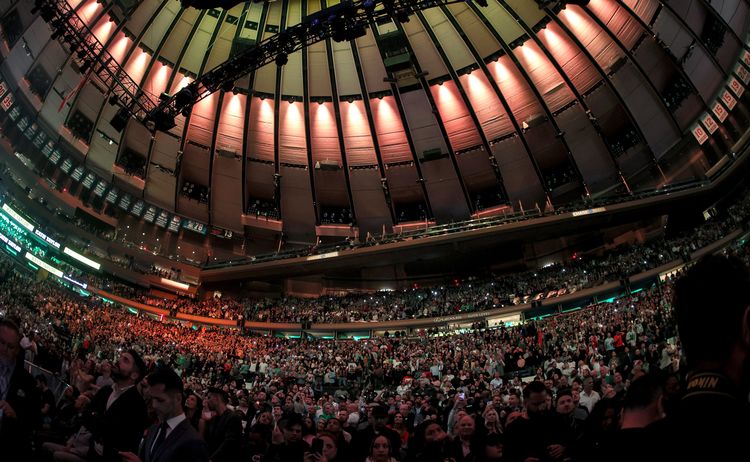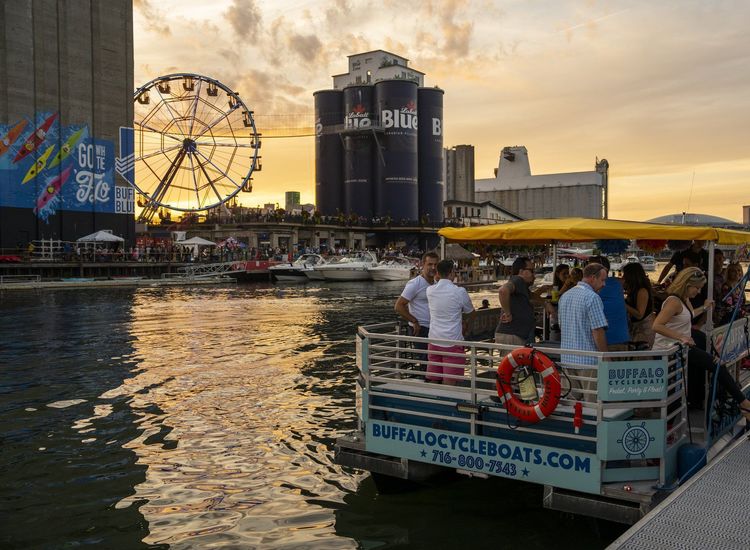Some of the participants in the webinar. Screengrab photo
By Irish Echo Staff
"HUNGER STRIKE 1980," the first in a series of Ancient Order of Hibernians events honoring the legacy of the 1981 Hunger Strikers and held last weekend was, according to a release, highlighted by new revelations about British strategy inside and outside the prison, as well as the crucial battle for American opinion.
The live online broadcast featured one of the seven 1980 Hunger Strikers Tommy McKearney, former H-Block Blanketman now MLA, Fra McCann, and political commentator Andree Murphy.
British Prime Minister Margaret Thatcher's decision after the 53 day Hunger Strike ended December 18, 1980, to intensify repression rather than compromise, triggered the 1981 Hunger Strike, and forever changed Ireland's political landscape as well as its American dimension, the AOH release stated.
The webinar opened with the Republican prisoners' statement declaring the 1980 Hunger Strike, read by Ancient Order of Hibernian President Danny O'Connell. Seven prisoners in the H-Bocks of Long Kesh began hunger strike on October 27,1980, demanding to be treated as political prisoners, "refusing to bow the knee before the British administration and wear a criminal uniform" despite years of British brutality. They were Brendan Hughes, Tommy McKearney, Leo Green, Sean McKenna, Raymond McCartney, Tom McFeeley and INLA member John Nixon.
Ladies Ancient Order of Hibernians President, Karen Keane, noted that Mairead Farrell, Mary Doyle and Mairead Nugent had joined the Hunger Strike on December 1 from Armagh Women's Prison. Past AOH President, Judge James McKay, commended those using new technologies to bring key speakers from Ireland "at this crucial time."
The support of other Irish organizations, including Irish Northern Aid, Irish American Unity Conference and the Brehon Law Society was also welcomed.
Stated AOH Freedom For All Ireland Committee chair, Martin Galvin: "Fra McCann, former Belfast City Councilman, and elected Stormont Assembly member, explained how seeing British troops and Royal Ulster constabulary carrying out the Falls Curfew, Internment and Bloody Sunday, convinced him to join the Irish Republican Army and fight to end British rule. He was twice imprisoned as a political or special category prisoner, a status recognized by the British after a 1972 Hunger Strike led by legendary IRA Commander Billy McKee.
"However, in 1976, the British decided to deny jury trials and establish special laws for political offenses, then treat those jailed were criminals, not political prisoners. The new laws were central to a new strategy portraying all Irish resistance to British rule as a crime. The centerpiece of this new policy was making prisoners wear a criminal costume, instead of their own clothes as political prisoners.
"Kieran Nugent, Fra McCann's lifelong friend, was the first man jailed in the H-Block cells in Long Kesh prison under the new British strategy. He said that if the British wanted him to wear a criminal costume, 'they would have to nail it to him.' Kieran Nugent was then forced to remain naked, except for a blanket. He and other Republican prisoners, called Blanketmen were systematically mistreated.
"Fra McCann joined the protest after being re-arrested. He and other Blanketmen were constantly beaten. There were no toilets in the cells, which became filled with human waste. Young prisoners were targeted for special beatings. The Blanketmen began a series of protests inside Long Kesh, while Cardinal O'Fiaich and others attempted to get the Thatcher regime to compromise.
"Upon his release, Fra McCann was sent to America in the crucial battle for American opinion. He, Kieran Nugent, and Liam Carlin, travelled to America despite being denied visas and legal entry. McCann was smuggled into Buffalo then sent to New York. Irish American supporters sent him on a national tour including San Francisco, Chicago, Dayton, Ohio, Albany, and Washington, D.C. doing newspaper and television interviews and meetings with Irish American supporters. In Boston he had to leave a press conference in the Massachusetts State House, as Immigration arrived.
"Caught by Immigration, a sympathetic judge told him to claim political asylum and released him. This meant Fra McCann could appear publicly at advertised events. When the Hunger Strike ended he was in New York, speaking in a packed hall alongside the United Nations. He saw headlines, 'Irish Hunger Strikers near death.' A leading politician pointed out Ireland was front page news in America for the first time since Bloody Sunday.
"Political commentator Andree Murphy was introduced by LAOH FFAI Chair Dolores Desch. Murphy described how the political campaign outside the prisons began with the mothers and relatives of Irish prisoners forming Relatives Action Committees to highlight conditions. These grew into a National H-Block Armagh Committee and protest marches began to turn out large numbers showing political support for the Blanketmen. The British reacted by deploying loyalists to assassinate leading members of the committee including Miriam Daly, John Turnley, Ronnie Bunting. Bernadette Devlin McAliskey and her husband were severely wounded.
"As the campaign grew British troops and Royal Ulster Constabulary took over. Women and children were killed with plastic bullets. The aim was to intimidate and criminalize supporters. Those killed were portrayed as rioters or criminals and no member of crown forces was held accountable.
"Before the Hunger Strikes, Ms. Murphy said, the North seemed to be ignored or forgotten in the 26 counties. By the end of the Hunger Strikes, the names of the Hunger Strikers could be seen on street corners across the country and the impact is felt in Irish politics today.
"Tommy McKearney described collusion and how loyalists, directed by British crown forces, killed members of his family as they worked the family owned shop. He himself was jailed after a Diplock non-jury trial, where the only evidence was a fabricated confession he had never made. A doctor employed by the RUC, Dr. Robert Irwin, made a formal complaint about the injuries he saw that Mr. McKearney suffered under interrogation. Dr. Irwin's charges about beatings of suspects were highlighted by Amnesty International and a television documentary.
"After years of inhuman conditions, and the British refusing any compromises, he volunteered to go on Hunger Strike, and was chosen to represent Tyrone. He was near death, going in and out of consciousness at the time the Hunger Strike ended.
"The H-Bock prisoners expected the British to make gradual moves on a criminal uniform or other conditions. Instead Margaret Thatcher and the British decided to intensify efforts to break the prisoners and their struggle. Her miscalculation made the 1981 Hunger Strike and death of ten Irish patriots inevitable.
"The 1980 Hunger Strike, changed the political landscape in America as well as Ireland, so that when Bobby Sands began his Hunger Strike in 1981,Irish America understood what was at stake, and was united and ready to respond. The numbers of people and Irish American groups who joined with the AOH and LAOH to watch this broadcast shows that the legacy of the 1981 Hunger Strike Martyrs continues to inspire Irish Americans. That legacy will be in direct contrast with British celebrations of the one hundredth anniversary of partition and formation of the Orange State."










